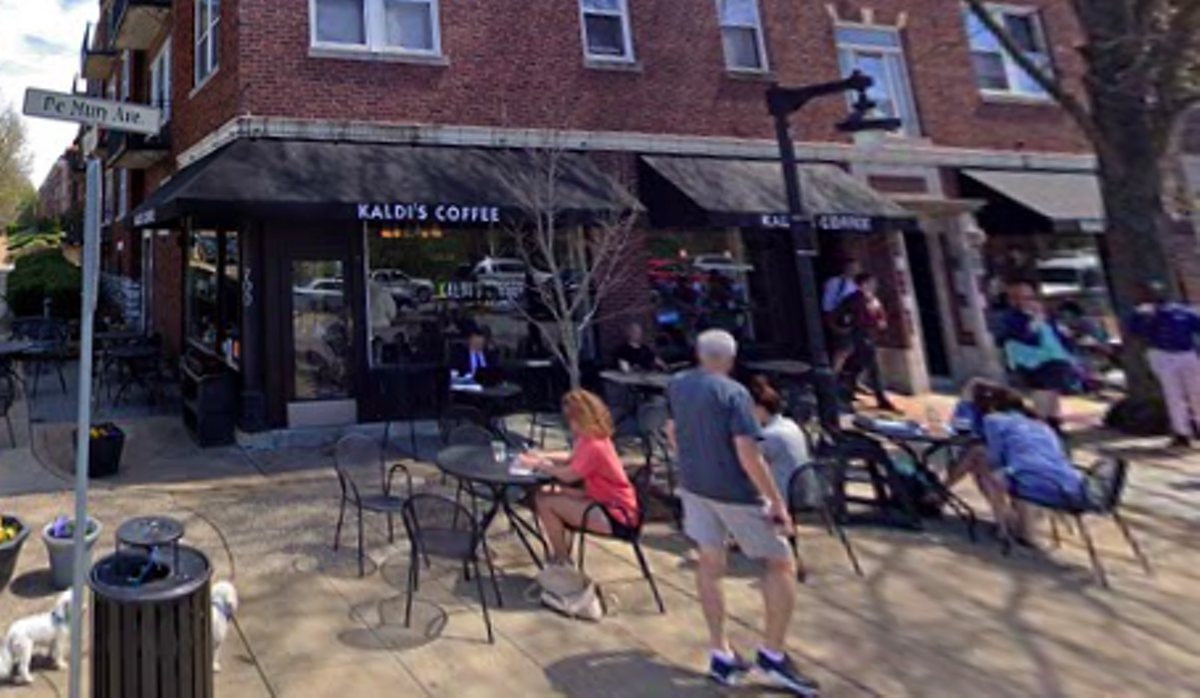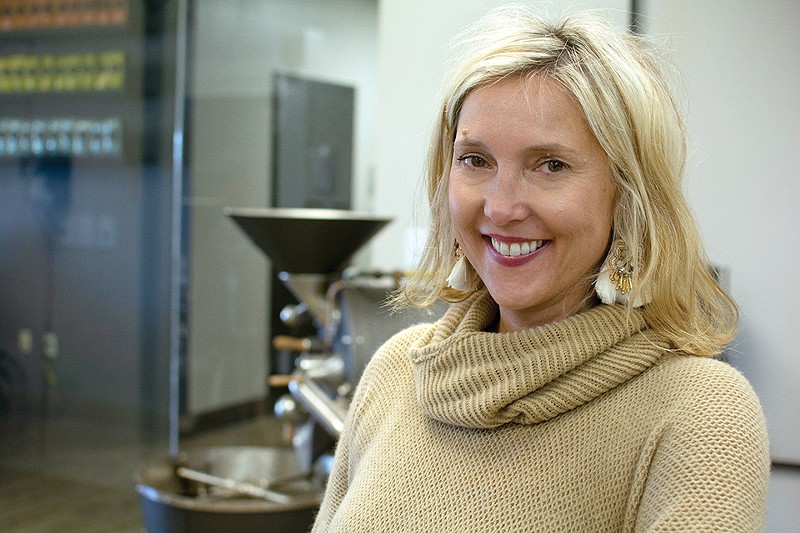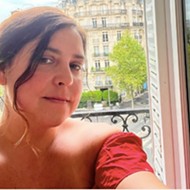Jeramy Perry could not believe what he was hearing when he received the news that he'd been fired from his job at Kaldi's Coffee. He'd expected that he would have a conversation with his superiors after he says one of his coworkers assaulted him with a toilet plunger, but he was stunned to learn he was being blamed for the incident after, unbeknownst to him, a customer called Kaldi's co-owner Tricia Zimmer Ferguson to let her know that a Black male employee was yelling at a white woman in the middle of the lobby.
In hindsight, Perry knows he should have seen this coming. For three years, he'd been employed by the St. Louis-based coffee brand, working his way up to lead baker at the company's Demun café. Throughout his employment, Perry says he had experienced regular microaggressions — the consistent lack of eye contact with white managers, meetings he wasn't invited to, dismissed Black applicants he'd encouraged to apply when the café was short staffed — but the problematic company culture they signaled never fully registered with him until his firing last December. Though he was reinstated following an investigation that absolved him of any wrongdoing, Perry says he was forced to work with his assailant and was eventually pushed out of the café when his hours were cut to prevent their paths from crossing — a situation he has come to see as emblematic of the company's culture of devaluing its Black employees.
"If you are not white enough or way too Black, if you act way too ghetto, you are not part of Kaldi's culture," Perry says. "You can be a Black guy, but you have to be a quiet Black guy who won't speak his mind or say what you felt like saying. That's why I didn't fit in. I never understood what culture meant until I was halfway through working for them and seeing people who were trying to get jobs and couldn't get jobs. If you are Black, but you are too Black, that's too much for them. They can't deal with that because they don't know how to talk to you."
Over the years, Kaldi's has grown from its original shop in Demun to eighteen locations, including cafés in Columbia, Kansas City and Atlanta, according to its website.
If Perry thought he was alone in his experiences, that perception was blown out of the water on June 2 when Kaldi's posted a black square in honor of Blackout Tuesday on its Instagram page. Meant to signal solidarity with the Black Lives Matter movement for racial justice, the post quickly became a forum for former employees who, like Perry, say they either experienced or witnessed a work environment that is unwelcoming to Black employees and indifferent to creating a diverse and inclusive workforce. Within hours, comments from current and former employees began pouring in, alleging everything from racist hiring practices to inconsistent discipline, to belittling behavior toward Black associates and patrons.
The pushback did not stop there. When Kaldi's posted again on Instagram on June 8, this time with a statement about its commitment to standing against racism, more commenters came forward to share similar stories of the company's lack of diversity and unwelcoming environment for Black employees. All echoed a similar sentiment: Kaldi's does not care about Black people.
Like many ex-employees, Cole Sawyer, a former barista at the Kaldi's Euclid location in the Central West End, felt compelled to speak out when he saw the company's Instagram posts. Self-identified as a white, cisgender gay man, Sawyer says that he was never the victim of discrimination at Kaldi's, but he witnessed it during his employment. He was particularly surprised by the lack of Black coworkers at his café, which is located in a diverse neighborhood and surrounded by other businesses staffed with Black employees. According to Sawyer, the two adjacent businesses, ZZA and Shake Shack, both had majority Black staff, while Kaldi's had a staff of 21 that included seventeen white employees, three Asian employees and one Puerto Rican employee.
Sawyer found the racial makeup of his store quizzical. When hired, he was told he had something the company refers to as "the sparkle," an X-factor that guides their hiring decisions and is considered a quality that can determine whether or not an applicant will be a good fit for the organization. However, the longer he worked for Kaldi's, the more he came to question why applicants of color seemed to lack such a quality in the eyes of hiring managers.
"This 'sparkle' is something that upper management says is a requirement to work for the company," Sawyer says. "I was never told exactly what 'sparkle' meant, but I assumed it was some sort of X-factor or special ingredient in my DNA that made me a really badass barista. I find it really hard to believe that no Black people possessed that same sparkle."
Perry heard the word "sparkle" many times as well and was equally confused why the applicants he kept sending Kaldi's way — mostly Black people — seemed to lack it. Though the cafes were consistently looking for bakers, not one of the people he encouraged to apply was ultimately hired, he says. In time, he came to see the term as a code that white hiring managers could use to screen out people who did not look like them.
"They were always looking for bakers, but no matter how many times I'd send them people — mostly colored people — they never took anyone," Perry says. "Even though they were desperate and the people I sent them had professional skills beyond what Kaldi's needed, they still wouldn't get hired."
Perry might have believed this had something to do with him, personally, had he not witnessed a similar disinterest in hiring Black employees at the company's weekly hiring events. Though the events regularly yielded Black applicants, those applications would go to the bottom of the pile without a second look. In the rare instances that a Black person was hired, they were typically given positions in the back of the house, or as Perry notes, "away from the customers."
Chris Brown, through his Instagram handle "@blerd_is_the_word," echoes the criticism of Kaldi's failure to hire Black people, noting that, in his three years working for the company, he was the only Black team member at his location, even though neighboring restaurants had multiple Black and Brown employees.
Three ex-employees, all of whom asked the Riverfront Times to withhold their names, describe similar circumstances. One says she only had two Black co-workers during her two years of employment; another corroborates this lack of diversity, explaining that she, too, only had two Black co-workers during her two-year tenure with the company. However, their allegations against Kaldi's are not contained to its lack of diversity but include issues like inconsistent discipline, alleging Black employees were held to a different standard than their white counterparts for things like tardiness and dress-code violations, wage disparity, lack of sensitivity to LGBTQIA+ employees and an overall unpleasant work environment. Perry is not surprised.
"If you worked at the roastery, you were a golden child," Perry explains. "If you work there or become friends with them, you are good. If you work in the cafes, you are treated like crap. Different people get disciplined differently. Some of the stuff they do is just a human problem; they just have trouble treating people well, period. If you aren't somebody they want and they hire you anyway, they're going to find a way to get rid of you."
Kaldi's has been slow to respond to the criticism. Though the company has made no replies to any of the comments on its June 2 post, it made attempts to do so on its June 8 one, reaching out to individual commenters with acknowledgment that they had seen the posts and would like to hear more. Perry is one of those commenters, and he has been disappointed by the lack of dialogue and the company's apparent unwillingness to engage. Instead of speaking with someone from the company directly, he has instead been contacted by an intermediary, who is a Black former roastery employee. He says that Kaldi's has asked to meet with him on June 29, but he feels that a three-week delay speaks volumes about the company's desire to hear what he has to say.
The RFT reached out to Kaldi's with request for comment to the allegations lodged against it by several former employees. The company didn't respond to specific questions, but did issue a statement, attributed to Zimmer Ferguson, which says that it has taken multiple actions due to the feedback from former employees. Among these are the formation of a Diversity Advisory Committee that includes BIPOC, LGBTQIA+ and other members of the team, anti-racism and anti-bias training for new and current team members, and reliance on the Diversity Advisory Committee to play a role in hiring and promotions within the company. The statement also says that Kaldi's will focus its community support to prioritize communities of color by partnering with organizations like the Urban League of Metropolitan St. Louis.
"Kaldi's is one of many organizations that has been prompted by this national conversation to take this feedback and improve how we conduct our business," the statement reads. "We are going to move quickly to make these improvements, so all of our team members and guests receive a better Kaldi's experience."
Perry remains hopeful that once people know about his experiences at Kaldi's it will force real change within the organization. Even if that does not happen, he is glad that his voice has helped empower others to speak up and share their experiences.
"I've talked to people who have told me they are thankful that I said something because they have been terrified of this company for so long and wanted to speak out, but they were worried they would lose their jobs," Perry says. "By giving people the opportunity to say something now, a lot of people are letting go of the pain of Kaldi's and are allowed to speak out and feel better. I'm just happy I can help them let go of it."








